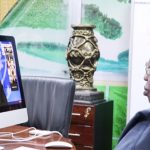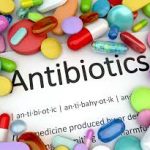The Nigeria Centre for Disease Control (NCDC), has said the nation now has enough reagents to test at least 200,000 samples in all the laboratories in the country.
The Director-General of NCDC, Dr Chikwe Ihekweazu, disclosed this on Monday at the daily briefing of the Presidential Task Force (PTF) on COVID-19 in Abuja.
“We now have enough reagents to test close to 200,000 samples across all the labs in our network. We now really need to work with the state epidemiologists, to collect the samples,” Ihekweazu said.
According to him, the centre will now focus a lot of its response over the next few weeks on the states and the set of professionals (epidemiologist) that work in all states.
Ihekweazu said there are incident managers of the emergency operation centres in many states, adding “we are the heart of collaboration with the states.”
The DG said: “But also there have few opportunities coming their way to support the work that were doing we are raising looking for resources wherever possible to make their life easier and one thing that we must get out of this outbreak is really to build a network around them.
“So very often in the past, they have not really been recognized their responsibility in the work that they are doing on our behalf.
“But in effect to do that work effectively, they need the resources. So it is really they’re the first people we call when we hear there is a case of X or Y or there is a cluster of an unknown illness or unknown deaths, our first response is always the call the state epidemiologist.”
He noted that because of lack of resources they could not go into the rural areas to go and investigate.
“The centre is looking for various opportunities and are there are some opportunities in the horizons to support them to be able to do their work better.
“But critically, we have also been advocating to the state governors. These outbreak has brought their Public Health teams much closer together with the leadership of every state. So now most state governors now know their state epidemiologist very well.
“And that relationship will grow over the next few years because we will not return to a country with the hell security architecture that we had in the past. We will need to build on what we have learned from this outbreak to design a great architecture for the future.
“And this means that we need to use technology, use our platforms and build a lot more closer relationship across the different tiers of government from the federal at the NCDC level to the state epidemiologist, in the teams and the disease surveillance and notification officers and in every local government area, ” Ihekweazu explained.
The NCDC boss also said the centre was working with the World Bank to design some high-impact interventions that will get support.
“They hope that out of this, they would build an agile, flexible workforce for health security in Nigeria that will be responsive and able to react, use technology, have the best access to diagnostic and really make sure that we are much better position to prevent, detect and respond.
“So this group of healthcare workers, will become like they are Frontline soldiers in the fight against infectious diseases.
“But for them to do this, we must equip them with the skills, the knowledge, the equipment, the resources, the physical infrastructure, the vehicles, the motorcycles, the phones and the resources they need to do the hard work they do on our behalf.
“So as we got to the hundred day mark this is really where we focus on our reflection today and we’re happy to host the chair of the Presidential Task Force at the National Reference Lab. I share some of the work being done by the colleagues in that lab.
“But we also want to focus a little bit on testing all together. Across the country we now have reagents to test close to 200,000 samples across every lab in our Network.
“We really need to work with the state epidemiologist over the next week to collect the samples. If you look at the data carefully today, we had the highest number of cases reported from Abia State and because they ramped up their testing and they are doing the right thing.
“They can understand the burden of disease that they have and if they have more; and by the time you understand the burden of the disease you are able to plan an appropriate response,” Ihekweazu said.























Leave a comment